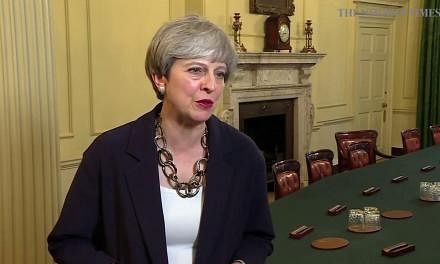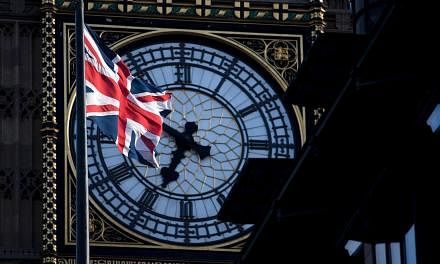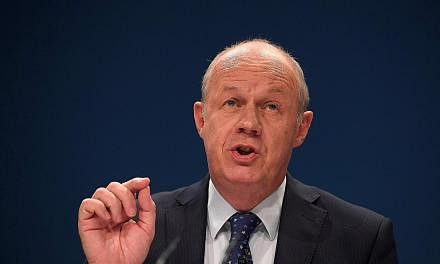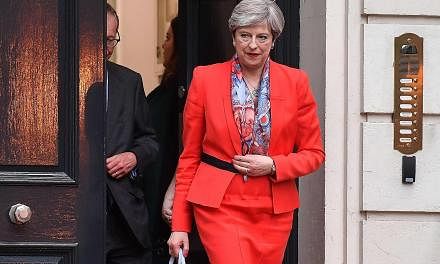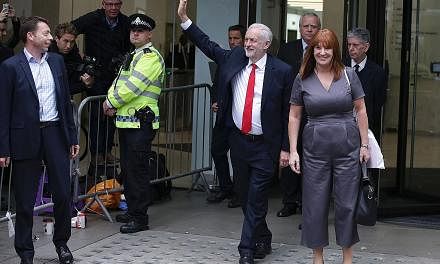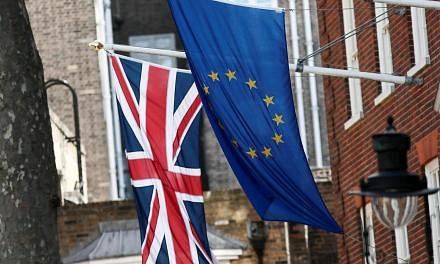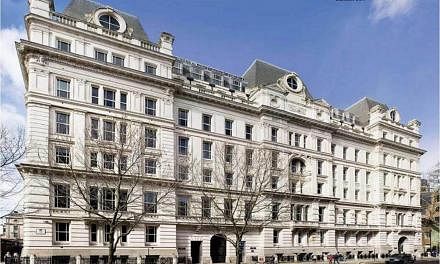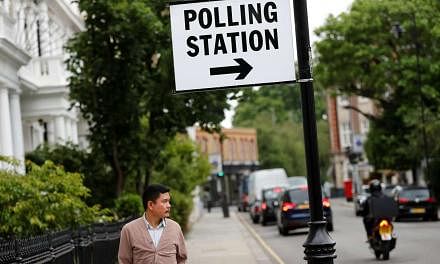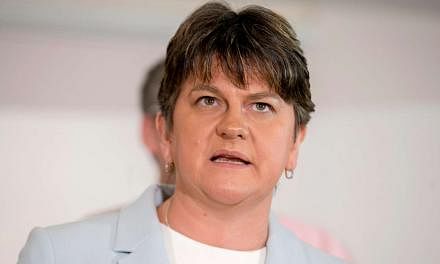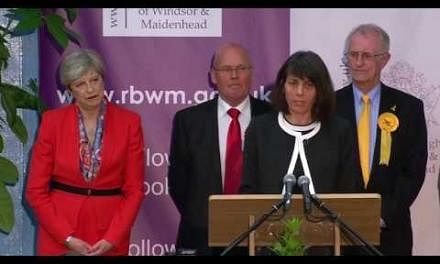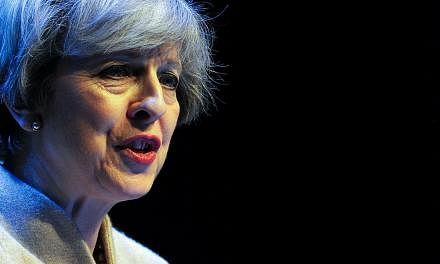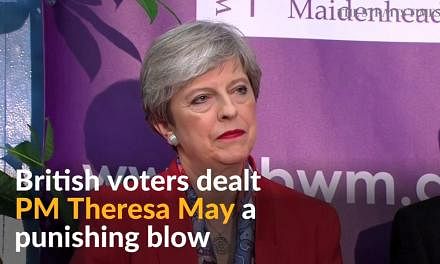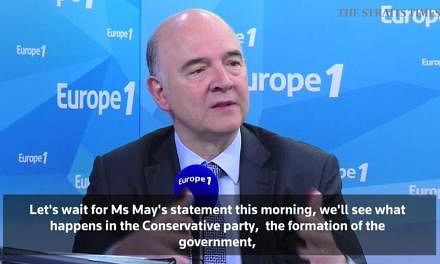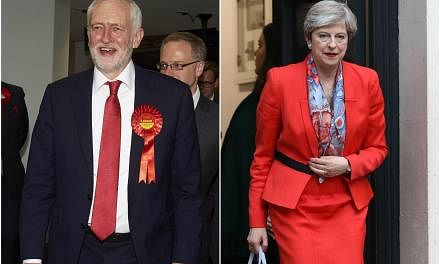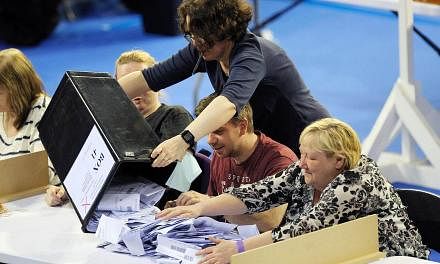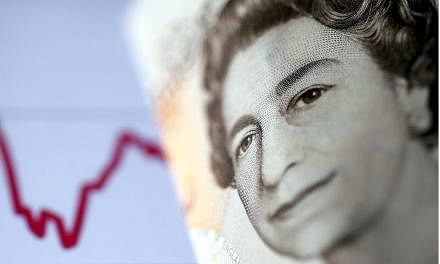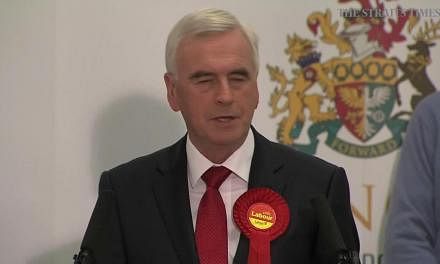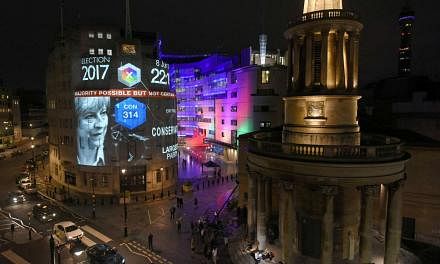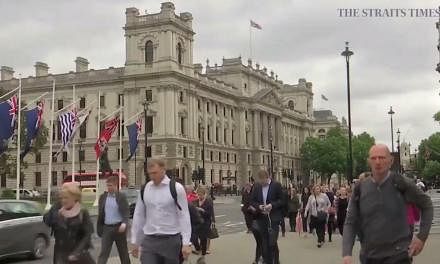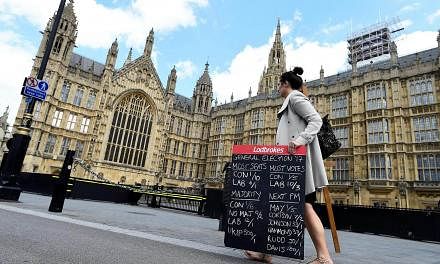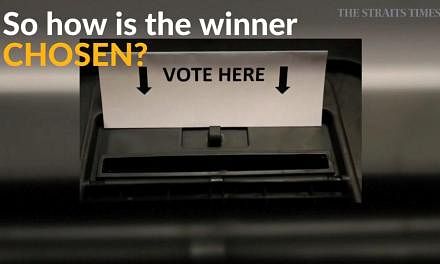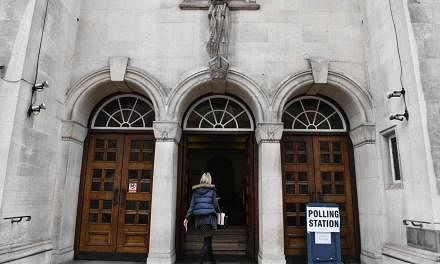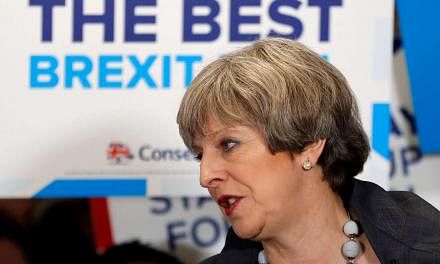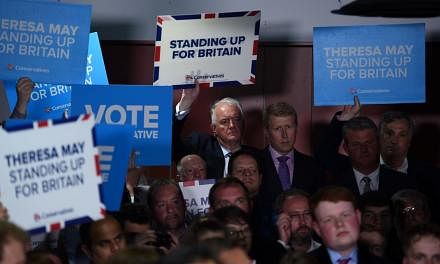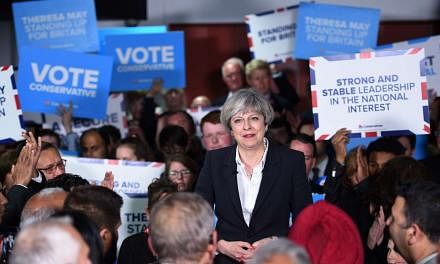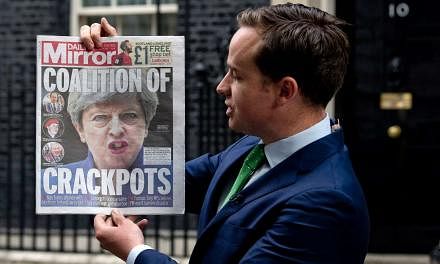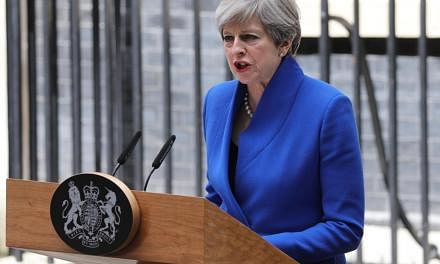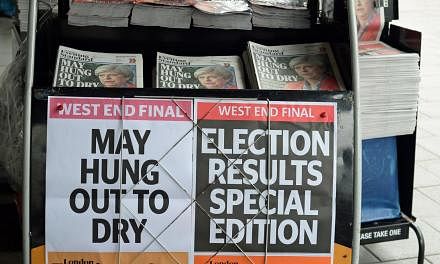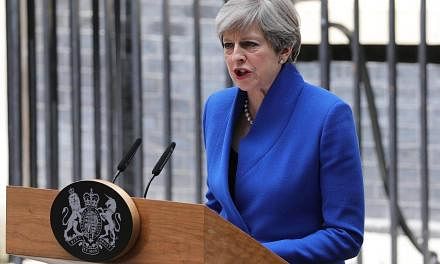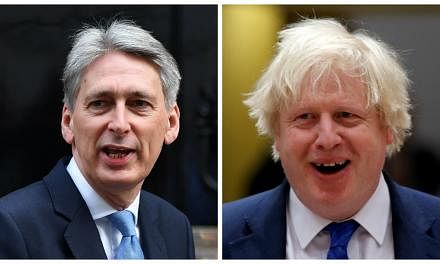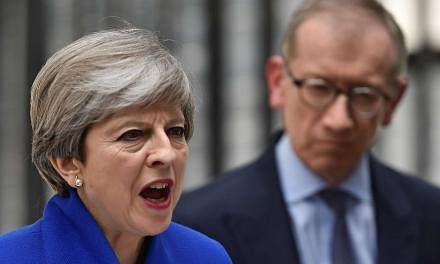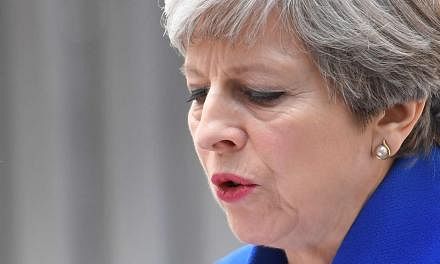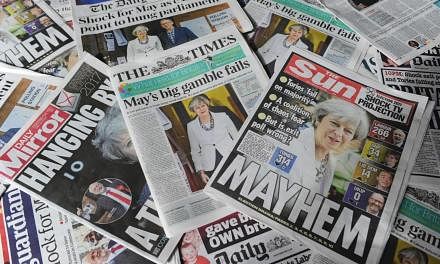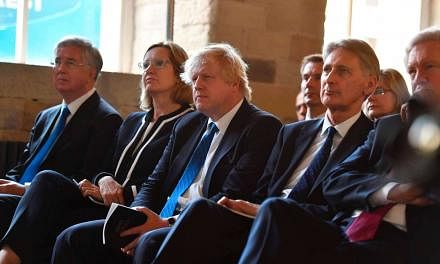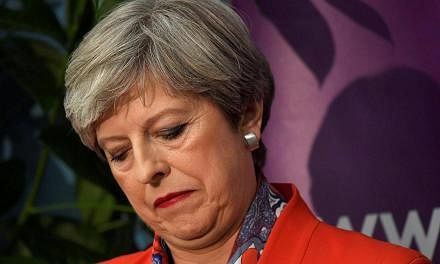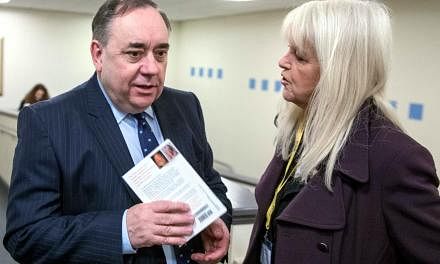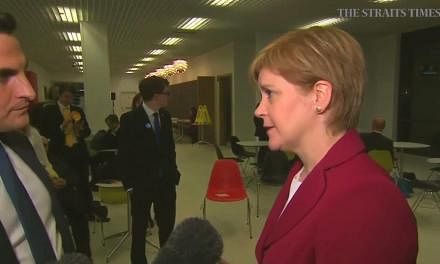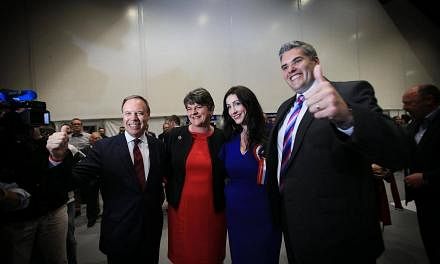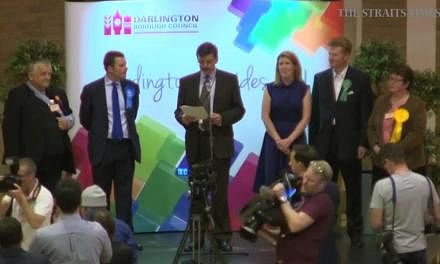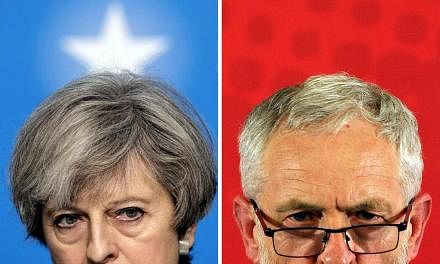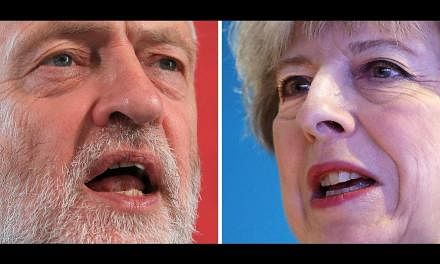LONDON (NYTIMES) - As Britain took stock Friday (June 9) of the stunning results of a snap election that wiped out the parliamentary majority of Prime Minister Theresa May and her governing Conservative Party, one narrative bubbled up to the surface: The youth had spoken.
The election results were fueled partly by a higher turnout rate among young British voters who had long been angry at the results of the referendum last year to leave the European Union, known as Brexit.
That vote, overwhelmingly supported by older Britons, was seen by many younger people as a threat to their jobs, their ability to study abroad and their desire to travel freely across the bloc's borders.
In other words, the vote by young Britons on Thursday had a whiff of payback.
"I was so angry about Brexit that I buried my head in a pillow and screamed," said Louise Traynor, 24, a waitress in the south-western district of Battersea in London, who had never voted before Thursday.
Shaking her head in frustration, Traynor said she had been angry at herself because she hadn't bothered to vote the first time around. "I was stupid enough to think that the country had some sense," she said.
The Brexit referendum, Traynor said, could lead to closed borders, which threatened to tear her long-term Spanish boyfriend away from her, and her away from the group of European friends she had made while working at a tapas restaurant.
On Friday morning, she said, much of the anxiety she had felt about her future was replaced with excitement when she realised that her vote for the opposition Labour Party had denied the prime minister a mandate.
Jeremy Corbyn's Labour gained 31 seats, while May's party lost 12 seats and its overall majority - leaving a hung Parliament, one in which neither side has enough lawmakers for control. In a statement on Friday, May grimly announced that she would form a minority government with the Democratic Unionist Party of Northern Ireland.
Traynor said Corbyn's campaign had "injected energy" into what otherwise seemed like a stale election that would bring more "doom." "Does Theresa May care that I've been on minimum wage for three years and I'm still paying my student debt?" she asked. "No, she doesn't. All she cares about is Brexit and getting her deal."
Owen Jones, an author and Labour campaigner, wrote in The Guardian on Friday that young voters had been "ignored, ridiculed and demonised, even. They just don't care about politics, it's said, or they're just too lazy."
He added, "Our young have suffered disproportionately these past few years: student debt, a housing crisis, a lack of secure jobs, falling wages, cuts to social security."
Many young Britons felt compelled to vote after the Brexit decision, because of austerity budgets and what they saw as the establishment's tendency to serve the interests of the rich. This year saw a spike in young people registering to vote - more than 1 million people under 25 applied.
On the day in May the election was called, 57,987 people younger than 25 registered to vote - more than any other age group, according to the BBC. About 246,480 young people registered to vote on the last day in May that they were eligible, a significant increase from the 137,400 who did so on the cutoff date in 2015, The Telegraph reported.
The turnout in constituencies with younger voters rose significantly, appearing to benefit Labour. The turnout for 18- to 24-year-olds was 66.4 per cent, according to Sky News data. Other reports put it as high as 72 per cent.
In the 2015 general election, the rate for voters of the same age range was 43 per cent, according to Ipsod, a marketing and opinion research company.
Shona Macdonald, 52, a poll clerk in Nottingham, north of London, told The Times, "It was incredible to see so many students voting.The youth vote galvanised by Jeremy Corbyn was real."
There were doubts that younger voters would cast their ballots for Corbyn, who had toured the country, attracting crowds of all ages. His campaign was even compared to Bernie Sanders' US presidential race. In a Twitter post Friday, Sanders congratulated Corbyn for "running a very effective campaign."
Jennifer Hudson, a senior lecturer in politics at University College London, said the effectiveness of Corbyn's campaign could be seen in a picture of him with young supporters, cheek to cheek.
"I thought: 'We will never see Theresa May like that with her supporters,'" Hudson said. "He has managed to create a human connection with his voters."
Even when members of Corbyn's own party declared him unfit to lead, he continued to focus on young voters, including sitting for an interview with some of the country's top grime music stars that kick-started the grass-roots campaign group "Grime4Corbyn," which encouraged young people to register to vote.
Analysts say the part of Labour's manifesto that most resonated with Britain's youth was its promise to abolish university tuition fees. But Malia Bouattia, president of the National Union of Students, said the student vote was also about issues like cuts to the National Health Service.
On Friday, the mood in Battersea was celebratory, though Labour did not win an overt victory. Many youths said they had attended election parties until the early hours of the morning and had skipped work.
"We may still be far from the final result that we wanted, but this feels like progress, and hopefully, it gives out a message to the pompous Tories that they can't make bad decisions on our behalf," said Luke Rossi, 25, a musician who had voted for the first time.
In Battersea Park, students aged 19 to 21 were debating possible political outcomes of the election aftermath. All said they hoped May would be removed as leader of her party.
"She's an embarrassment to the country," said Fiona Barry, 20, a student at Queen Mary University in London. "England deserves so much better than that."
That sentiment was not shared by all younger voters. "I like some of Corbyn's policies, but he's just not fit to be prime minister," Aaron Neil, 23, of Dalston in east London, said before the election. "We need a strong leader and party to get us through Brexit negotiations and make sure the economy doesn't collapse."

